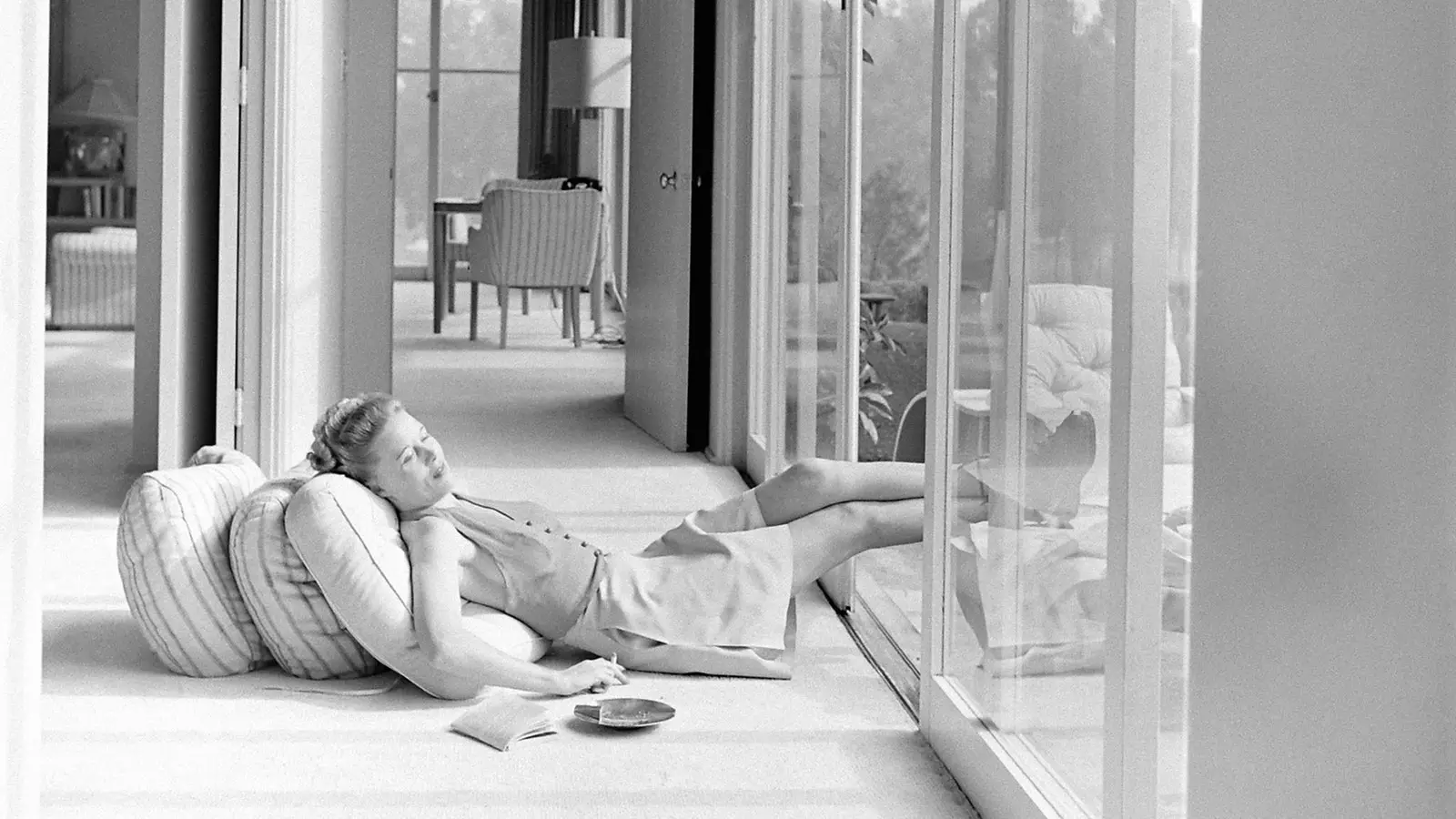
Producer Joan Harrison relaxes in the sun, 1945.
We stay at home, but that does not mean, far from it, to stop pay attention to what our body needs.
"It is essential to follow basic daily routines: daily cleaning, a good moisturizer...", says Dr. Mar Lázaro, from Zaragoza. “The same goes for hair, which needs to be kept clean and hydrated. It is a good time to forget about coloration and dye, which will mean a good rest for our hair, which will be less punished".
"It is also to take advantage of and put on a moisturizing mask for a longer time (for example, while performing everyday tasks or working online). If we do sports at home, something totally recommended to release endorphins and stay in shape, we will sweat, and therefore it is convenient to take care of skin and hair hygiene”.
And he adds: “Special attention must be paid to the hands, which due to the continuous necessary washings are tremendously dehydrated: the ideal is a good moisturizer or nourishing hand to apply during the day, and also before sleeping, capable of replenish lost water and lipids.
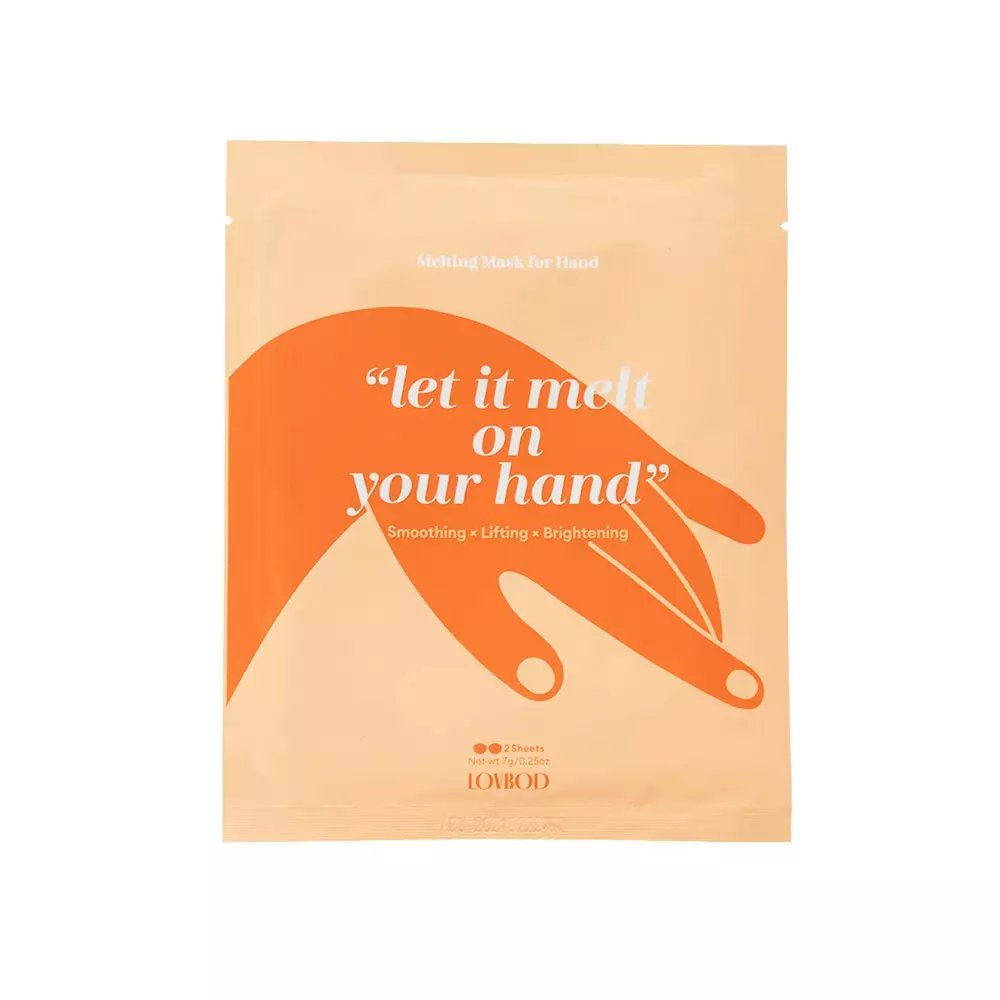
A hand mask is a good idea these days.
Not going out does not mean being stuck in a cave: “Exposure to sunlight is necessary for life and positively influences our mood, so it can help maintain a good physical and mental state in these days of seclusion”, explains the Dr. Rosa Taberner, dermatologist member of the Spanish Academy of Dermatology and Venereology.
Vitamin D helps regulate the metabolism of our bones and our immune system, among other no less important functions.
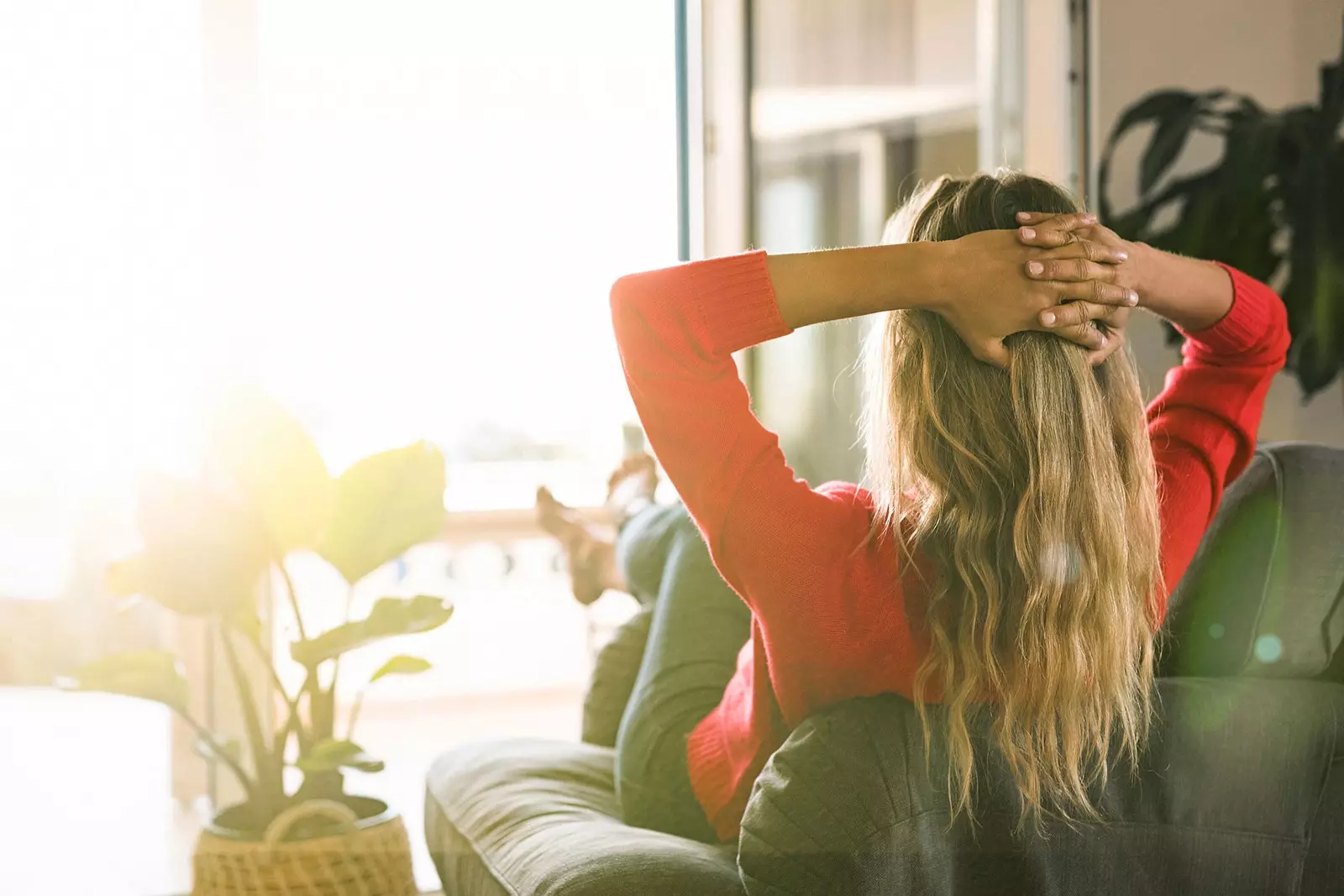
An open window is enough to load up on vitamin D.
“It is essential on a physical (cutaneous, therefore) and mental level, take half an hour of sun daily, opening a window will suffice if we don't have a garden or balcony; that it gives us in the face and arms to synthesize vitamin D, and also the air and light to even improve mood and increase good humor”, comments Dr. Lázaro, who she suggests getting out in the sun for a few minutes each day or at least three times a week.
“The main peculiarity of this vitamin is that only 10-20% comes from the diet, and the rest we must synthesize it from our skin”, Taberner comments. "And for this reaction to occur, exposure to sunlight is essential."
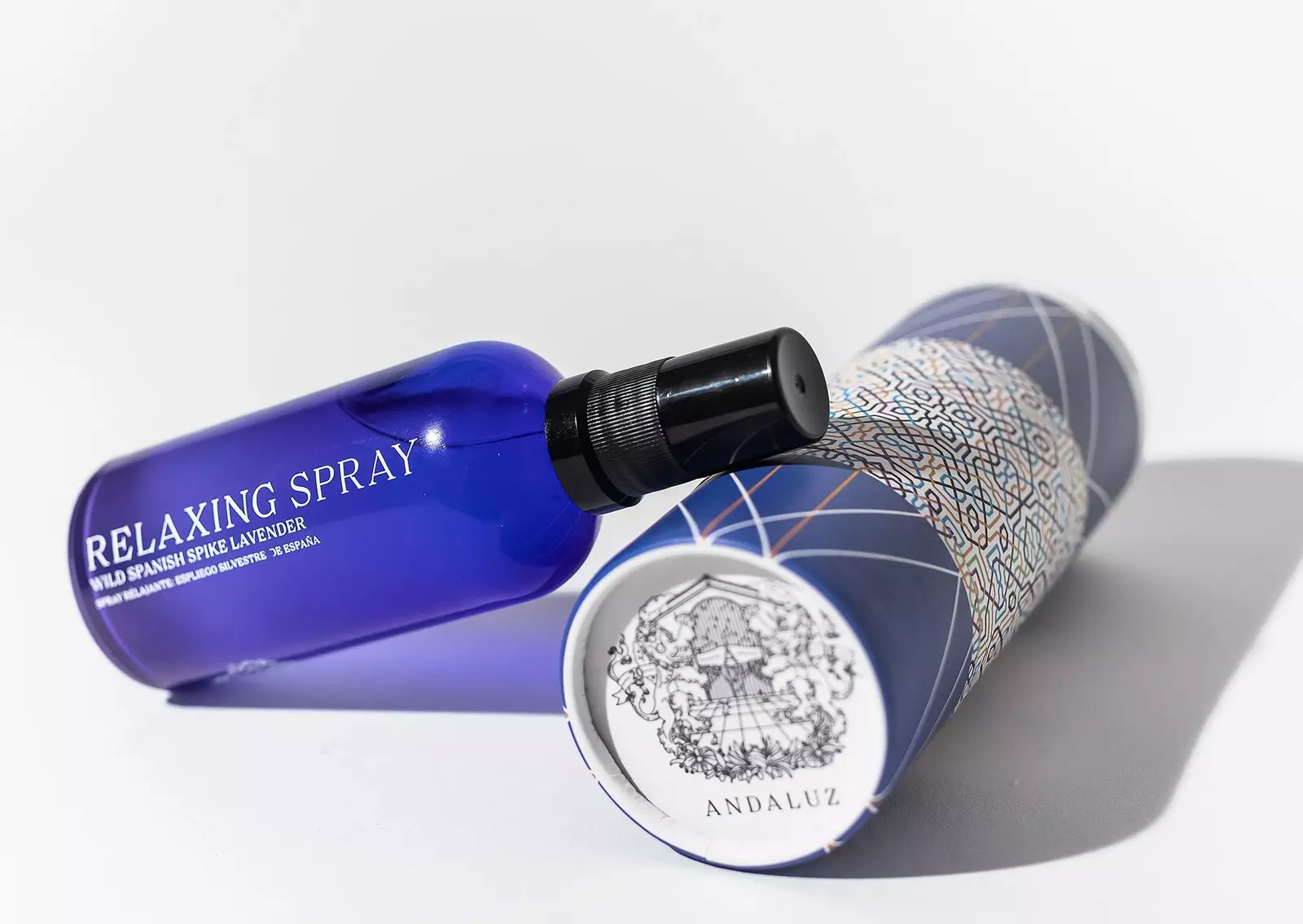
Take it easy, use relaxing products and take the opportunity to take care of yourself.
Of the entire spectrum of radiation that reaches us from the sun, only part of the higher energy type B ultraviolet rays will be responsible for carrying out this transformation. “There is a paradox that it is precisely that fraction of ultraviolet radiation that has the most carcinogenic capacity, and for that reason, the balance between what is necessary and what is excessive is so fragile”, warns the expert.
Dr. Taberner advises in this situation to do without using photoprotector, with one exception: "People who suffer from melasma (a type of spots on the face) in which the use of broad-spectrum sunscreen may be recommended."
Vitamin D is synthesized through the skin and is directly related to the immune system, influencing pathologies such as acne, rosacea, scarring, psoriasis or atopic dermatitis, that improve thanks to her.
And children? "Under normal conditions we try to be stricter with photoprotection in the child population, but they also need to manufacture their own vitamin D, so they would be worth it to us." the same recommendations as in adults, more carefully if they are very light-skinned children,” she adds.
If the little ones in the house do not have enough vitamin D, they can suffer from a developmental disorder, such as loss of bone mass or rickets, or bone fragility. Also, this vitamin helps fight viruses and bacteria, something so important these days.

To bad weather, good face.
WHEN A DOOR IS CLOSED...
Dr. Leo Cerrud totally agrees with his colleagues: “It is very important during the days of seclusion to try to expose yourself to the sun, even from windows or balconies, at least 10-15 min a day".
“The ideal is to expose ourselves in the central hours of the day (from 11 a.m. to 2 p.m.) for about 20 minutes, leaving the face, arms and legs uncovered. We are in spring time and in most of our territory the temperature is beginning to be quite pleasant”, explains Taberner.
"If we are going to be longer -he warns later-, then it is recommended to do it with photoprotection from the beginning, at least in more sensitive areas, such as the face and neckline.
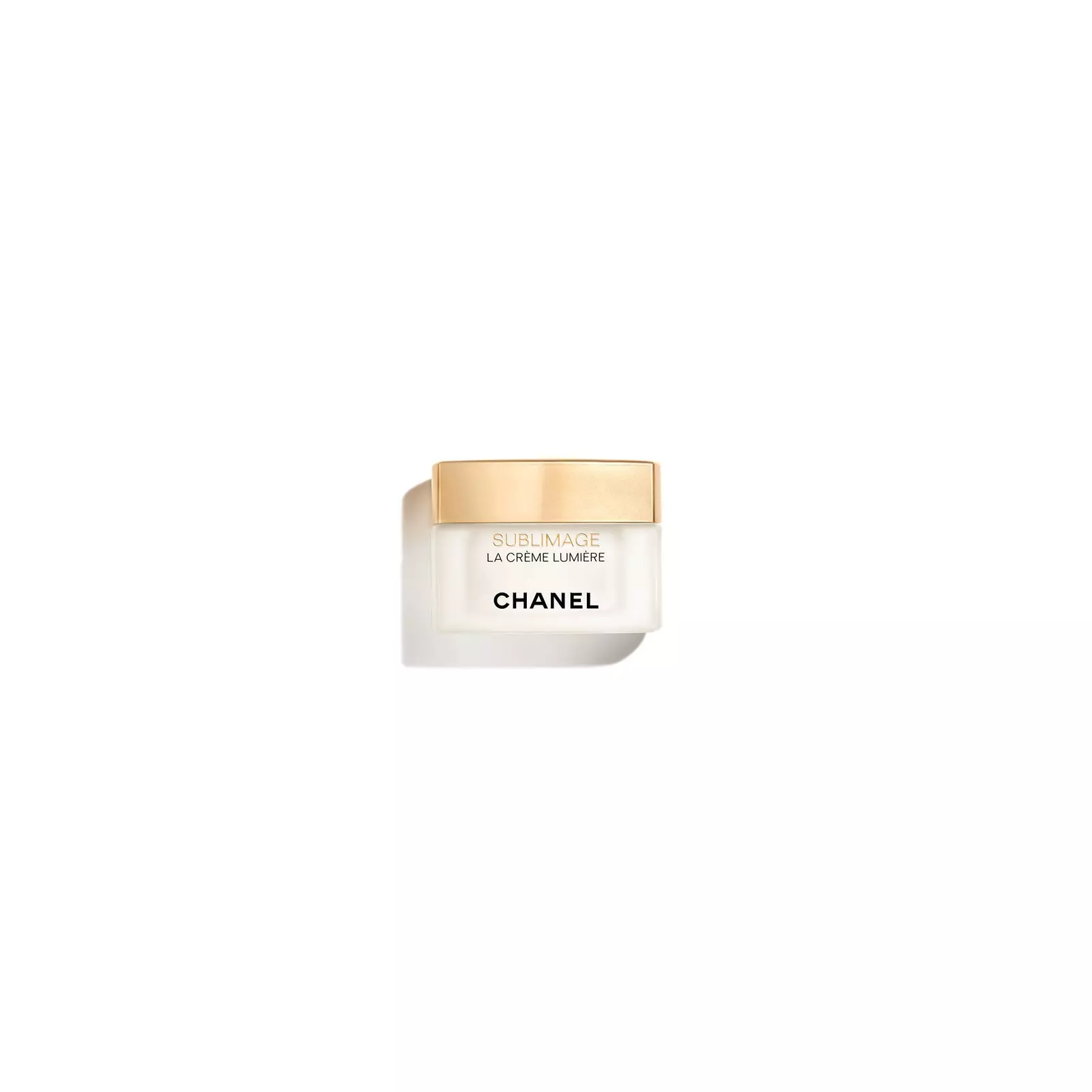
During the days at home, apply nourishing creams with many active ingredients like this one from Chanel.
If there is no balcony, the window must be, yes, open: “Feeling the warmth of the sun through a window can be very pleasant at this time of year or even in winter, but the glass, even if it is completely transparent, absorbs most of the ultraviolet radiation, so we ensure the* *beneficial effects on mood** but not vitamin D synthesis,” says Dr. Taberner.
Can we take advantage of this situation? "Risks to skin health are few," explains Cerrud. The consequences can be basically psychological: anxiety, depression, stress, frustration, etc. But To bad weather, good face!".
Some are already trying to see the positive side: “The generalized confinement of the population has an impact on the environment. Experts predict that, as has happened in China, contamination levels will probably go down,” predicts Dr. Taberner.
And she continues: “Our lungs will thank you and probably our skin too, although the effects are too imperceptible to the naked eye. It is also possible that (except for those professions "at the foot of the canyon") the quarantine allows some of us to rest more (in the form of more hours of sleep) and that can also have beneficial effects on the skin and health in general.
“We move away from contamination and therefore the skin is cleaner, and we also avoid sudden changes in temperature, which dehydrate the skin and unbalance the hydrolipidic layer”, suggests Lázaro.
We get rid of the photoprotector for a few days and, instead, Cerrud proposes to take advantage of and use products with powerful, enriching, nourishing, moisturizing, depigmenting, etc. active compounds. "Can be a perfect moment for depigmenting creams and anti-spot treatments”, that in times of prolonged sun exposure are usually discouraged.
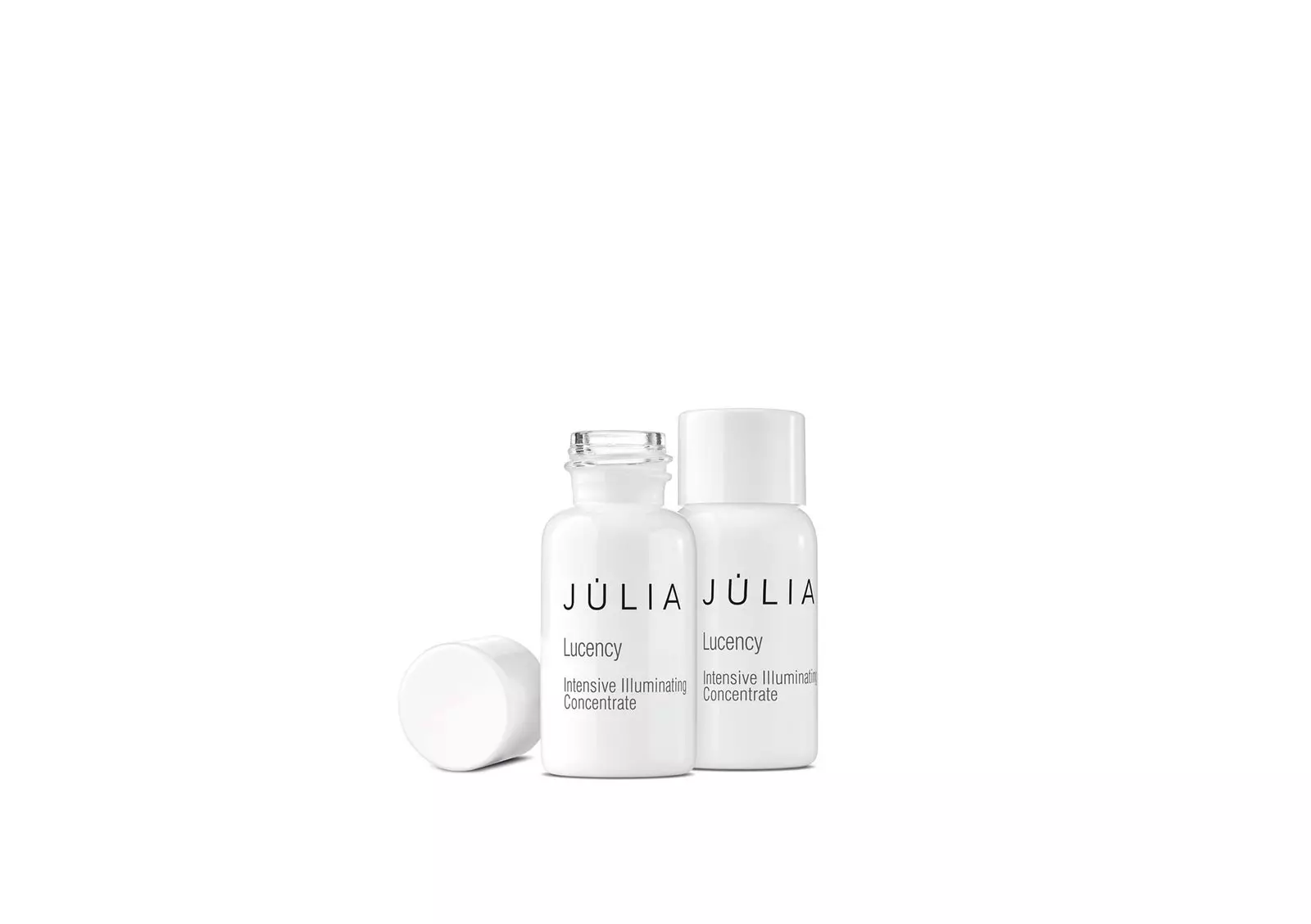
How about we take the opportunity to apply depigmenting treatments?
